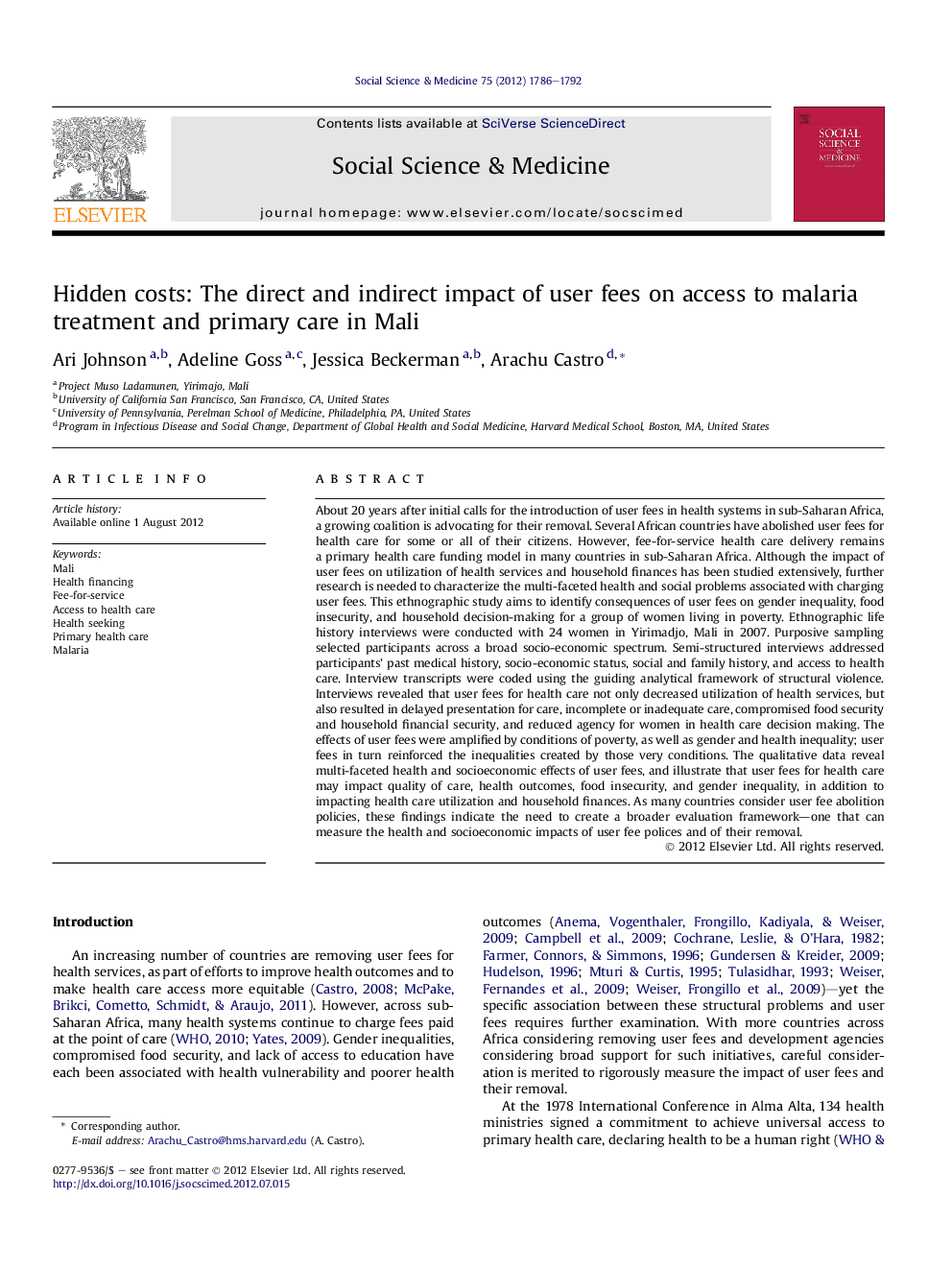| کد مقاله | کد نشریه | سال انتشار | مقاله انگلیسی | نسخه تمام متن |
|---|---|---|---|---|
| 952382 | 927505 | 2012 | 7 صفحه PDF | دانلود رایگان |

About 20 years after initial calls for the introduction of user fees in health systems in sub-Saharan Africa, a growing coalition is advocating for their removal. Several African countries have abolished user fees for health care for some or all of their citizens. However, fee-for-service health care delivery remains a primary health care funding model in many countries in sub-Saharan Africa. Although the impact of user fees on utilization of health services and household finances has been studied extensively, further research is needed to characterize the multi-faceted health and social problems associated with charging user fees. This ethnographic study aims to identify consequences of user fees on gender inequality, food insecurity, and household decision-making for a group of women living in poverty. Ethnographic life history interviews were conducted with 24 women in Yirimadjo, Mali in 2007. Purposive sampling selected participants across a broad socio-economic spectrum. Semi-structured interviews addressed participants' past medical history, socio-economic status, social and family history, and access to health care. Interview transcripts were coded using the guiding analytical framework of structural violence. Interviews revealed that user fees for health care not only decreased utilization of health services, but also resulted in delayed presentation for care, incomplete or inadequate care, compromised food security and household financial security, and reduced agency for women in health care decision making. The effects of user fees were amplified by conditions of poverty, as well as gender and health inequality; user fees in turn reinforced the inequalities created by those very conditions. The qualitative data reveal multi-faceted health and socioeconomic effects of user fees, and illustrate that user fees for health care may impact quality of care, health outcomes, food insecurity, and gender inequality, in addition to impacting health care utilization and household finances. As many countries consider user fee abolition policies, these findings indicate the need to create a broader evaluation framework—one that can measure the health and socioeconomic impacts of user fee polices and of their removal.
► Examines the multi-faceted effects of fee-for-service health care financing on women's agency and their families.
► Identifies mechanisms by which user fees negatively impact timely access to quality care and food and financial security.
► Elucidates the role of user fees in reinforcing conditions of poverty and gender inequality.
► Indicates that changes in utilization alone likely underestimate the impact of user fees on poverty and health outcomes.
► Proposes a comprehensive framework to measure the consequences of user fees and explores policy implications.
Journal: Social Science & Medicine - Volume 75, Issue 10, November 2012, Pages 1786–1792